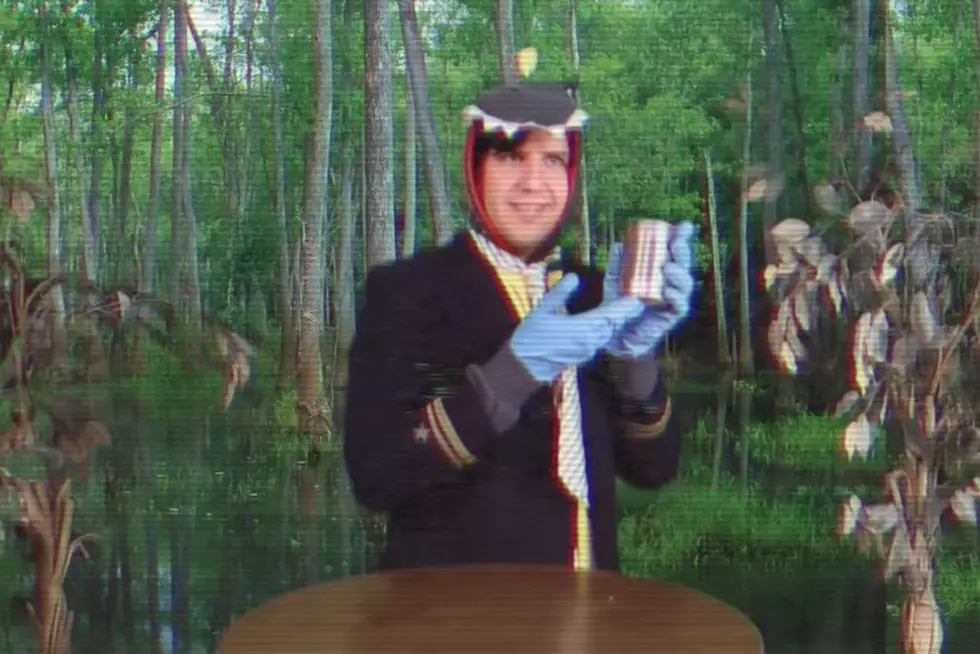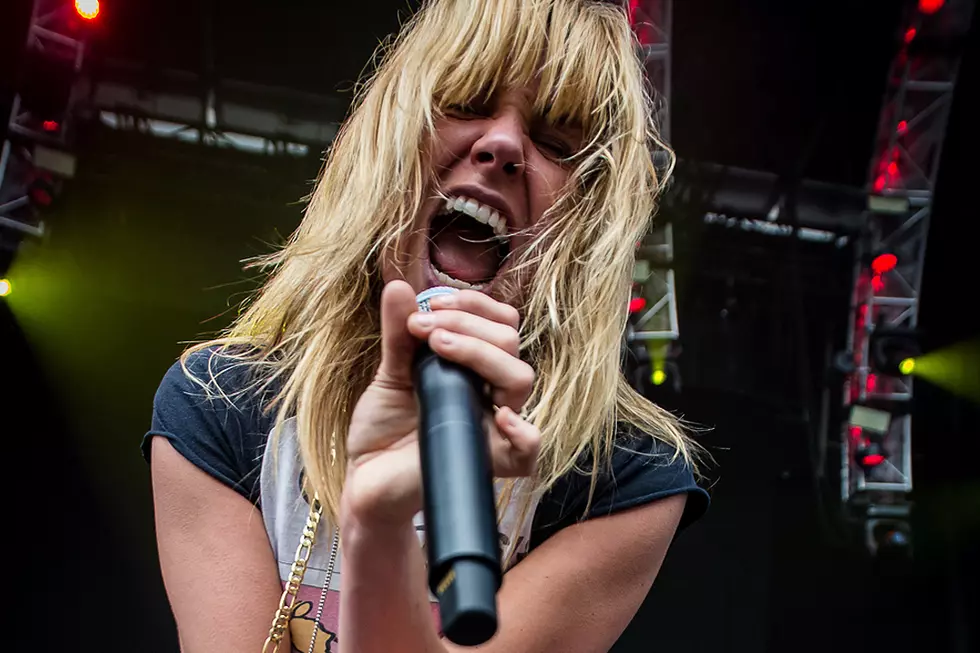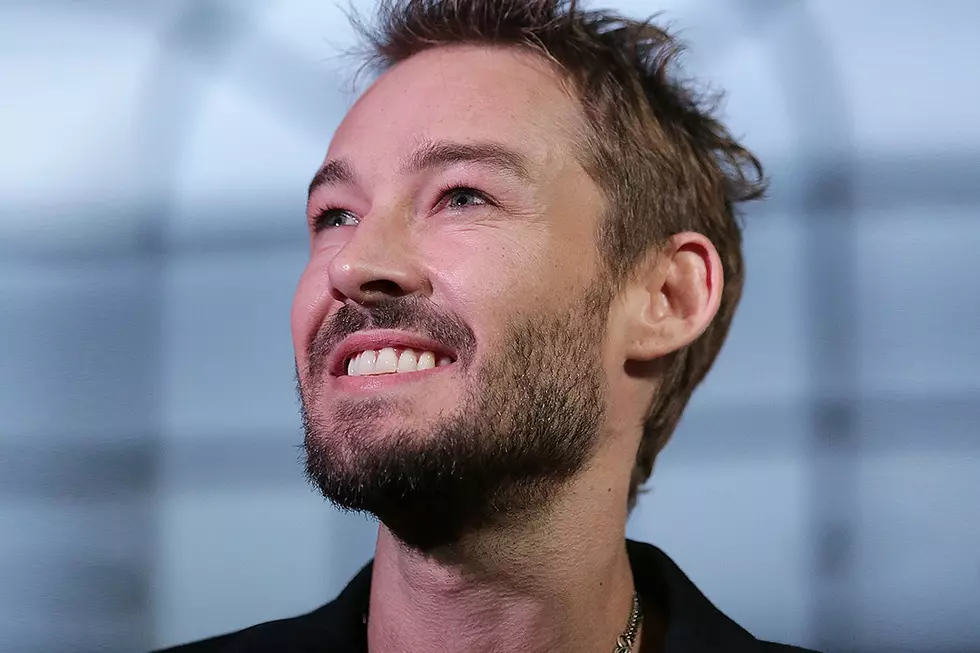
Dr. Dog’s Toby Leaman Discusses New Live Album, Flamingo Hotels + More
There’s almost a mythic quality surrounding Dr. Dog’s live shows; it’s preceded them well into their more than 15-year-long career. It seems fitting, then, that the Philly-based outfit has chosen this moment to document their famed shows with their new live album, ‘Live at a Flamingo Hotel.’ The 19-song record includes cuts the band curated from 20 gigs, ultimately making an album that transports listeners to any of those venues across the country that have been so adeptly filled with Dr. Dog’s ‘60s-inspired rock (if they haven’t been lucky enough to see the band live already).
The band is about to continue that tradition with another four-month tour. They had just wrapped up a four-night residency at the Music Hall of Williamsburg and were about to embark on another four-night stint at the Bowery Ballroom in New York City when singer-bassist Toby Leaman took some time to speak with us about their new live album, what a ‘Flamingo Hotel’ means to him and two other albums the band has in the works.
After seven albums and 15 years as a band, what made you guys decide that now was the time to make a live album?
It’s something we’ve been kicking around for a long time and now seemed like the time to do it. Especially with the songs on the record, a lot of those have been staples for a really long time, and there’s a thinking in the band that maybe we should drastically change up our set list, but we definitely wanted to have some sort of record of what our set once was. That was part of the rationale, and the other thing, too, as a band we felt like we were sort of playing the best we ever played, and it’s kind of a no-brainer in that way. We’re better than we have been, hopefully -- obviously, you get better, but the thinking was we’ve never been this good, and it also might be time to put some of these songs to bed for a little while.
What made you decide to track the album over the course of 20 shows rather than settling on one concert at a venue where you guys feel really at home?
We wanted the songs to sound like how we play them and we change the venue every night [and] the songs change very faintly every night, so we wanted to give ourselves some options if it wasn’t our best take. We didn’t want to throw our eggs in one basket and feel like we have to perform this thing, make it a big spectacle, have the audience know what’s going on and all that kind of stuff. That’s one way to do a live record, but we really wanted this to be a chronicle of where we’re at as a band. It sort of makes sense to us because that’s what we do; we play every night. And I feel like we got the best version that we could find of each one of those songs on the record. In my mind, it’s actually a better indication of what the idealized versions of the live shows seem [like] as opposed to just one giant blast of a show.
In that vein, how was that process different in comparison to when you guys go into the studio for an album? Is it more taxing? Less so?
Completely different. In the studio when you’re making a record, you’re making much broader and creative decisions than filtering through songs, but the process is at times pretty rigorous. There are some songs we might’ve played every night, so we literally had 20 versions of a song that needed to get whittled down. So there’s six of us in the band and we have 15 versions of ‘The Rabbit, the Bat, & the Reindeer,’ 19 versions of ‘Lonesome,’ we would get a song that we did do every night [and] we’d just divvy it up, so if we did a song 20 times, people would get three or four versions to listen to. You’d get the one from Austin, the one from Milwaukee and the one from Salt Lake, then the next person would get the one from D.C., the one from Burlington, the one from Philly. And then we just trusted each other enough to know people aren’t going to pick bad versions and they’re also not gonna skip over good ones. Sometimes you might listen to a song like, ‘None of these are good, but I’m just gonna pick one,’ because there are some songs where maybe literally half the time we did it, [it] felt like it was not acceptable for the record. And then there were other ones where so many versions of these are good, so that’s where we would come in and get rid of maybe six, maybe five and then everybody would listen to those. We listened to every single song many, many, many times. And once those decisions were made, it was pretty easy to go from there.
We spend so much time in the studio when we’re making a record, futzing around, making decisions about tone and structure and all the stuff that goes into actually writing and making the record, and then you don’t have to do that with a live record. You want the tone; once you get a drum set, a bass sound, a vocal sound and a guitar sound, you don’t want them to be too variable from each other, but on any given night, we’re using the exact same gear and using it the exact same way, so that was pretty easy once we figured out the song.
Since you didn’t choose one venue, what made you decide to come up with this fictitious ‘Flamingo Hotel’ to be the so-called setting?
Just to drive home the point that, yes, this is a live record. And the ‘Flamingo Hotel,’ I feel like that phrase in itself is evocative, whether you think it’s cool or dumb. I think you say those words and somebody has a vision in their mind of what that might possibly be. So, as opposed to trying to [say] it’s 20 different places -- you can’t really visualize that -- but I feel like a ‘Flamingo Hotel,’ even though we didn’t actually play the Flamingo Hotel, it helps to have some sort of imagery in your head, and it’s totally concocted by your own context and experience. It’s not something we’re telling you, you’re just making it up in your head. On top of that, too, we’re doing a tour right now and it’s a ‘Flamingo Hotel’ tour and the idea is to turn every venue into a ‘Flamingo Hotel’ and that’s just what we do. The only thing we play is the ‘Flamingo Hotel.’ [Laughs] We come to your house and we’re gonna play the ‘Flamingo Hotel’ in your town.
I understand that you made it into this overarching theme; what was the motivation behind that? When people come see you over the next four months, what’s that going to look like?
We always tour with some sort of set design, whether or not it’s a backdrop and then some stuff in the foreground. We’ve been playing with this proscenium and we ended up doctoring that concept for this arch and then the risers look kind of like band stands. [It’s] like this crappy mix between Art Deco and Miami sleaze. It’s just this concept that you’re not at the fanciest place in the world when you’re at a ‘Flamingo Hotel.’
Is there any time when we can expect your next studio album?
We have a couple things in the works right now. We have an album that’s almost completely finished. I’d like to do maybe another week on it and I think it’ll be done. I don’t know when that’s coming out. I think we might be recording another album maybe sometime in the spring. We’re kind of taking on a lot. [Laughs] When they’re coming out, though, that remains to be seen.
And can you give us any idea as to what Dr. Dog will sound like on those next albums?
They’re pretty dissimilar. The one we did is really sort of stripped down. We wanted to record a song fast and we wanted them to be without a lot of whistles, bells and without a lot of mixing. [On] the one I’m talking about, the bass is all upright. There’s a lot of acoustic stuff. We just thought it’d be fun to do an entire record like that. [The two albums are] sort of paired because the other one is going to be the exact opposite. [It’s going to be] this full-blown, bloated pop. With the last few records, we’re kind of always going between a sweep of genres, and [we wanted to] make it a really concise record where all the songs don’t sound so dissimilar. I guess that’s the direction we’re starting to move into.
More From Diffuser.fm









